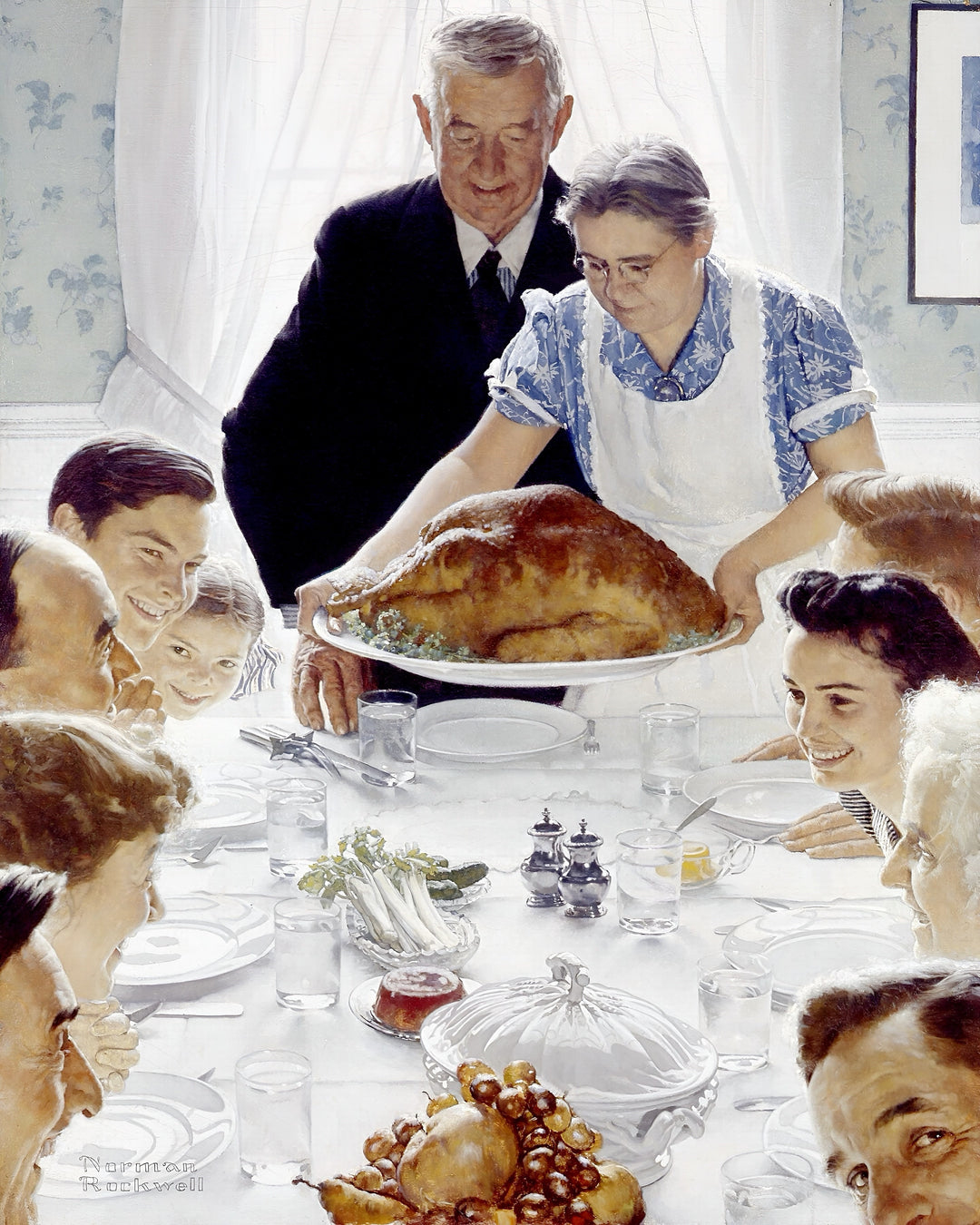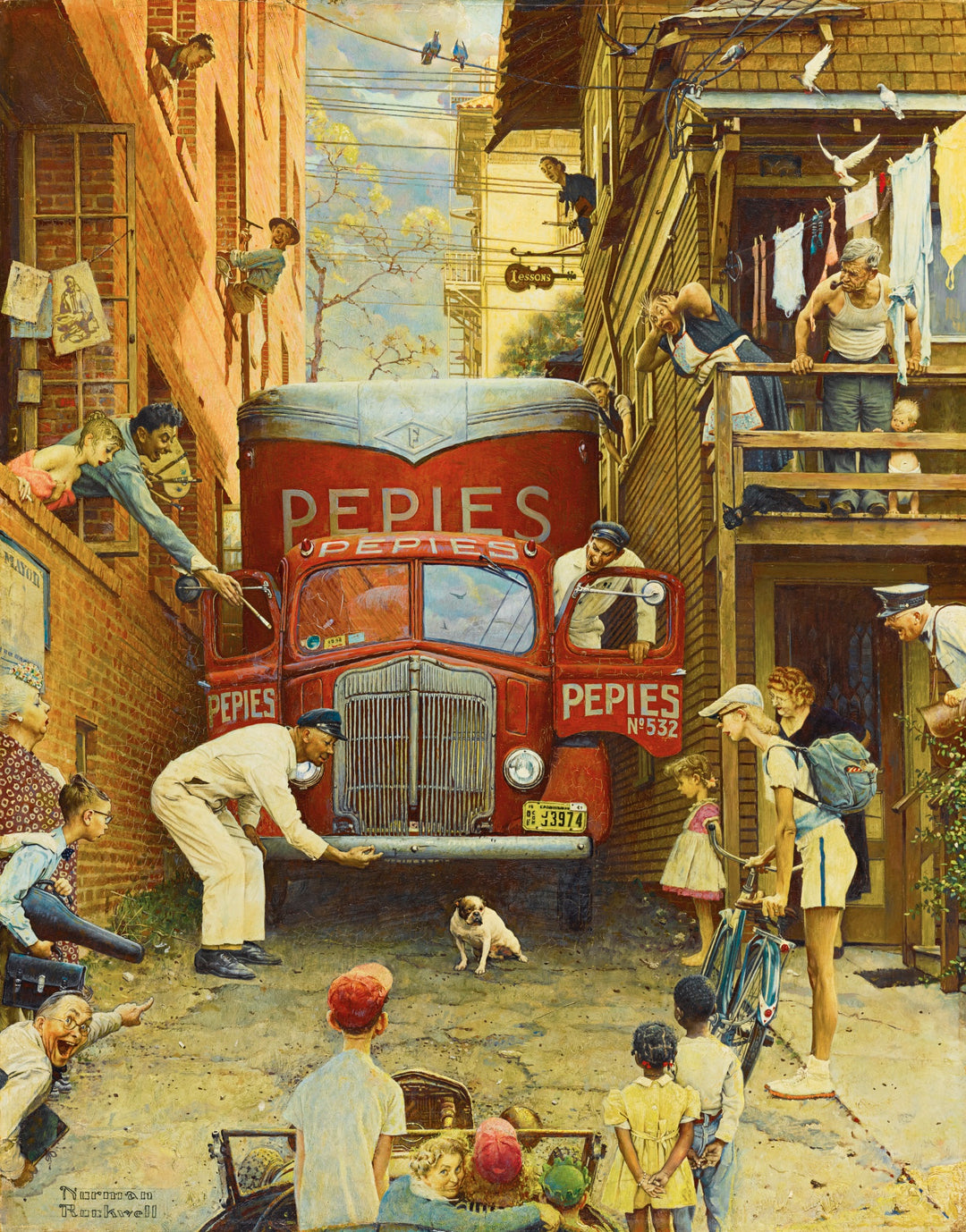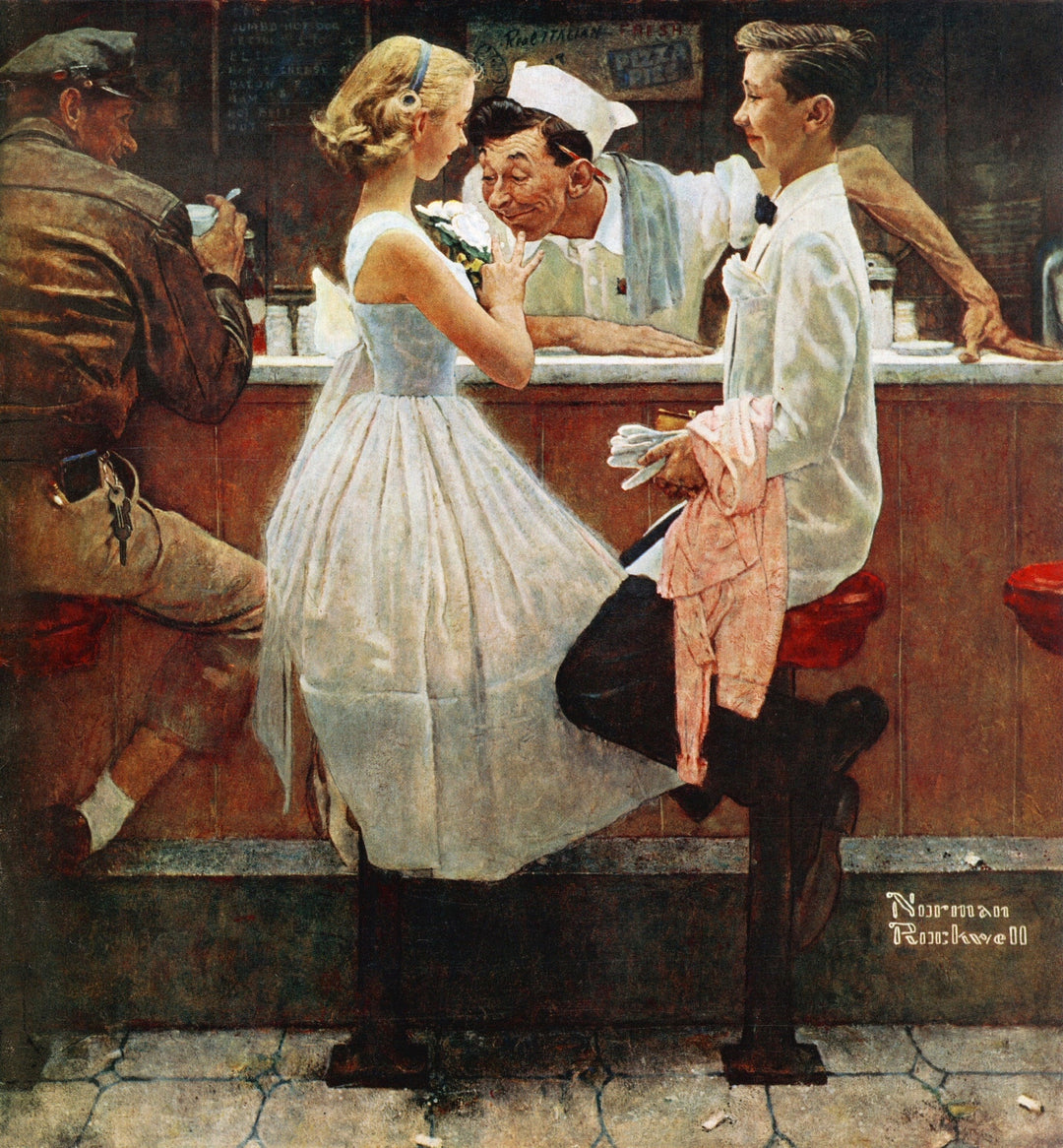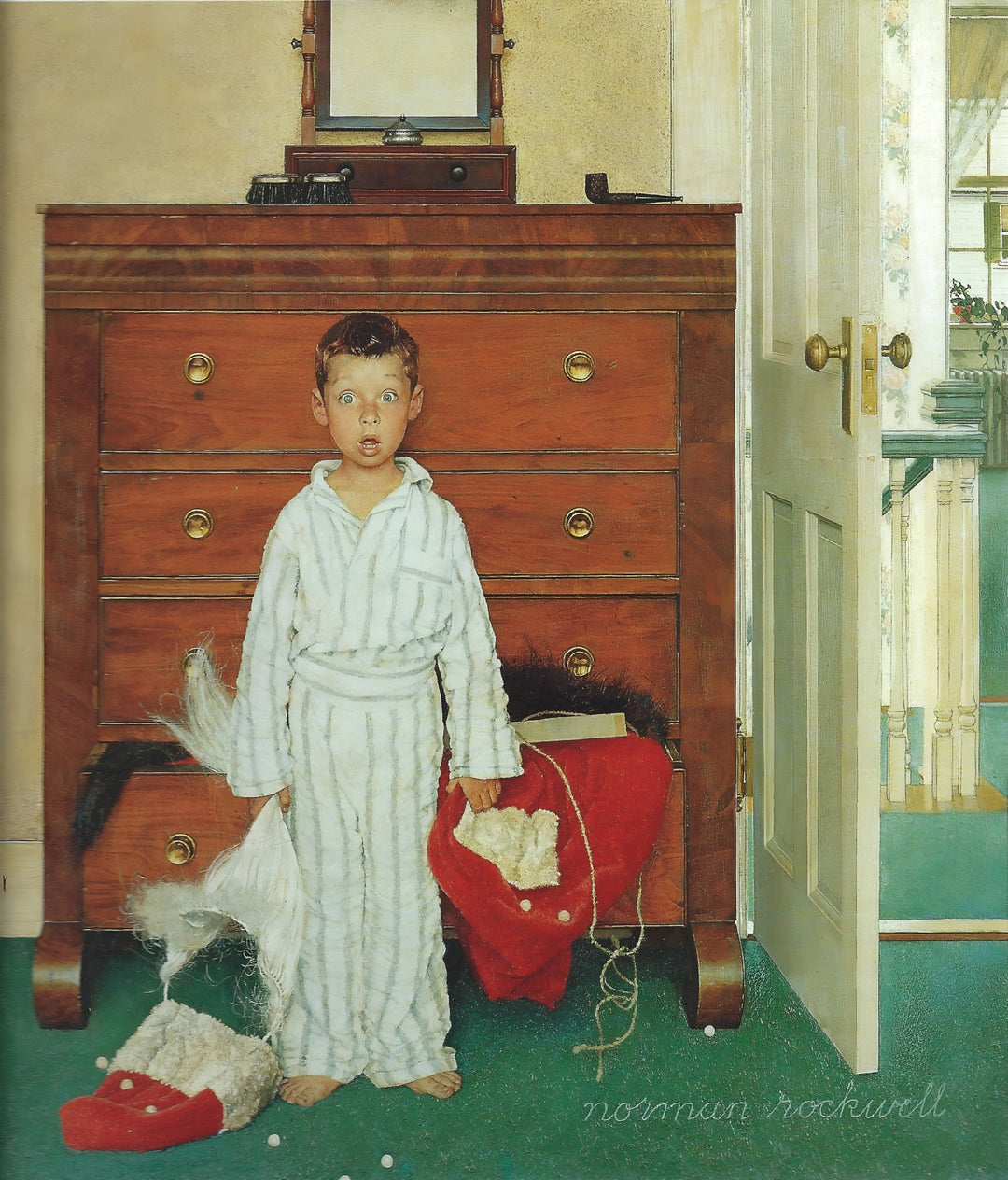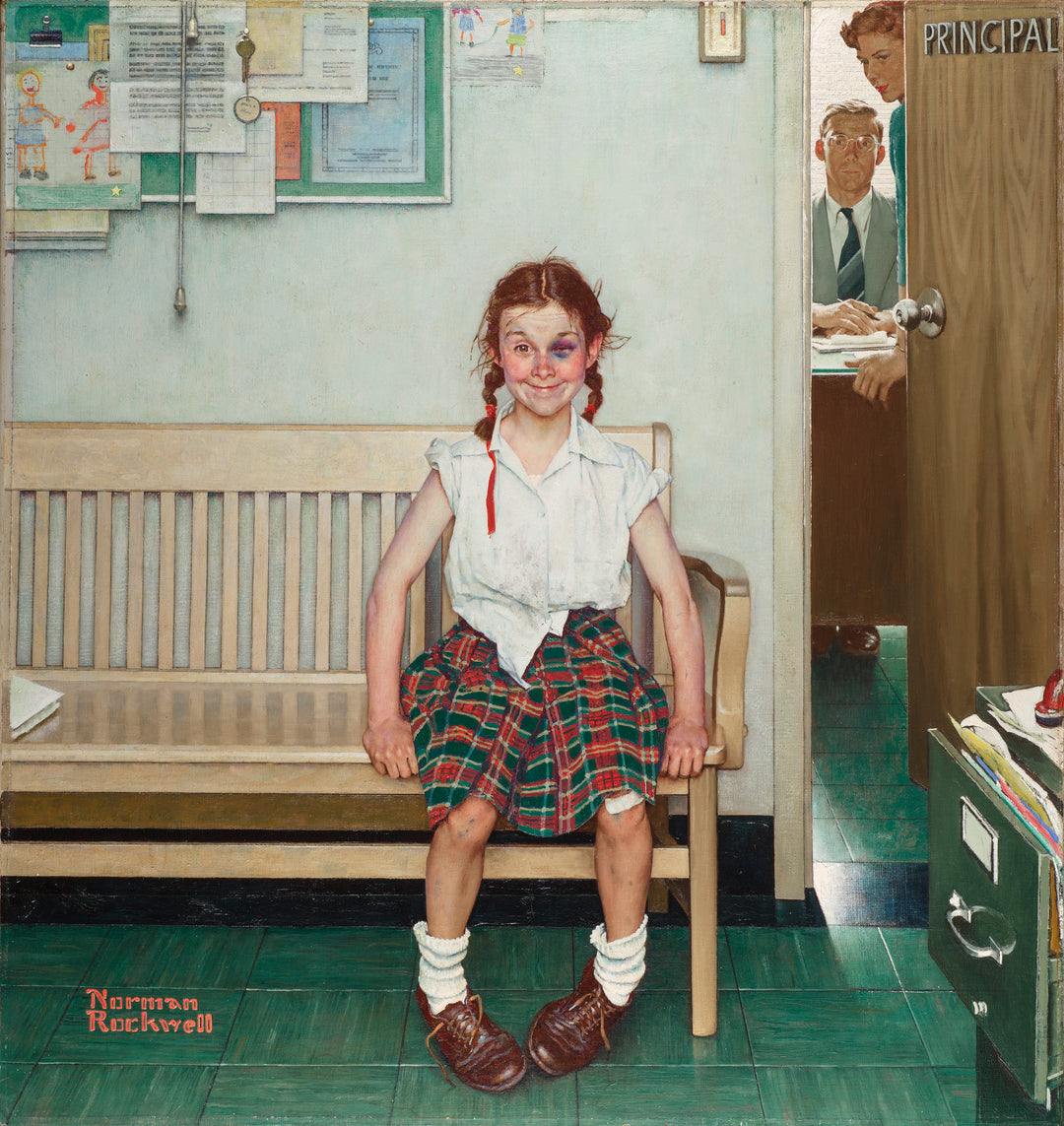
Norman Rockwell

Norman Percevel Rockwell, born in 1894 in New York, stood out as one of the most influential artists of American illustration in the 20th century. From a young age, he demonstrated a great ability to observe and portray everyday scenes, which led him to work as an illustrator for publications like "The Saturday Evening Post," where he created over 300 covers. Rockwell was influenced by American Realism, a movement that sought to capture the essence of everyday life and traditional values of American society. His scenes of family and rural life, such as "Freedom from Want (1943)," reflect optimism and hope in difficult times, such as World War II.
On a personal level, Rockwell was married three times. His first wife was Irene O'Connor, whom he married in 1916, but they had no children and divorced in 1930. In 1930, he married Mary Barstow, with whom he had three children: Jarvis, Thomas, and Peter. After Mary's death in 1959, he married for the third time to Molly Punderson in 1961, with whom he remained until his death in 1978, but they had no children together.
Despite seeing himself primarily as an illustrator and not an artist, his work influenced contemporary artists like Edward Hopper and Norman Lindsay, who admired his ability to tell emotionally charged visual stories. The attention to detail in clothing, facial expressions, and the environment was a constant in his works, turning each scene into an idealized reflection of American life. After the war, Rockwell began to tackle deeper themes, such as racial injustice, as shown in "The Problem We All Live With" (1964), where he exposes the struggle for civil rights.
Rockwell's parents, Jarvis Waring Rockwell and Anne Mary "Nancy" Hill, were Episcopalian, which influenced the traditional values the artist conveyed throughout his life and work. Driven by a deep sense of social responsibility, Rockwell departed from his traditional style in his later years to capture the challenges of modernity. In 1977, he was awarded the "Presidential Medal of Freedom," the highest civilian honor in the United States, in recognition of his cultural impact.
